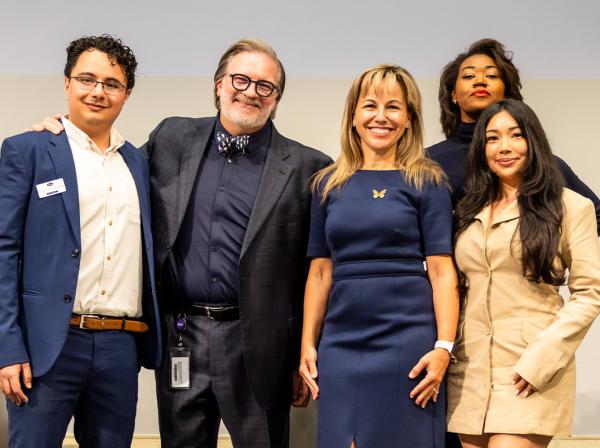A Day at St. Edward’s: Taylor Huey
Several mornings a week, Taylor Huey ’21 starts her day with a 2-mile run around Lady Bird Lake. It’s a practice she began last spring, when she was back home in Dallas and went for jogs around her neighborhood just to get out of the house. On Zoom calls, she and her friends discovered they were all doing the same thing, so they decided to keep up their habit together when they returned to Austin. The run clears her mind for the day ahead.
A Mathematics major, Huey is conducting math research and supports other students as a teaching assistant for Calculus and as a Math Lab tutor. She tells them how she, too, was intimidated by calculus as a college freshman. She dreaded going to her calculus class because she was afraid she wouldn’t do well. But she ended up enjoying the class, partly because she’d worked so hard to master the material. She now shares her strategies — work on assignments every day, do the homework early, ask questions — with the students she coaches.
“People think that they’re either naturally good at math or they’re not, so I start by trying to dispel that myth,” Huey says. “Usually telling them my own story is helpful. If they’re not understanding the material, they may need to put more effort in, but I also need to try harder to help them and explain in a way that they understand.”
Huey is also the vice president of the Student Government Association and serves on several committees, including the Natural Sciences Advisory Board and the President’s Taskforce on Systemic Racism. She says that the university has helped her gain the confidence to advocate for subjects that matter to her. “I’m more of a quiet person, and St. Edward’s really calls me to speak up and speak out about issues that I care about,” Huey says.
Covid-19 has reshaped Huey’s college experience, but she says the most significant impact of the pandemic is a collective societal epiphany.
“The problems that Covid has highlighted — students without access to the internet or a laptop, students who also had to work and provide childcare — have always existed, but now that they affect people of all income levels and races, they’re getting more attention,” she says. “I hope that, once the pandemic is over, we continue being more empathetic as a society and look for ways to help people who are disadvantaged.”
Photography by Chelsea Purgahn


